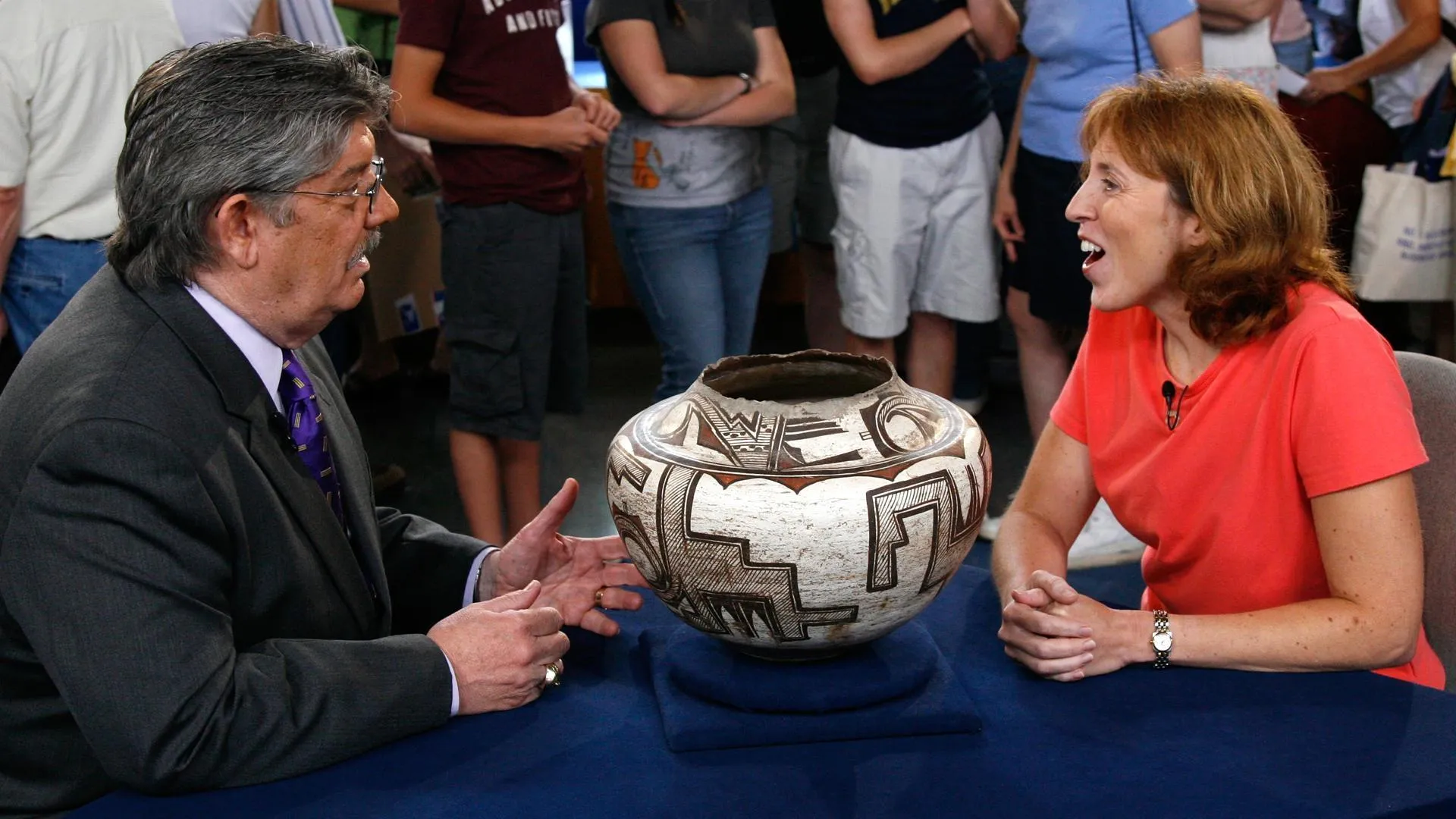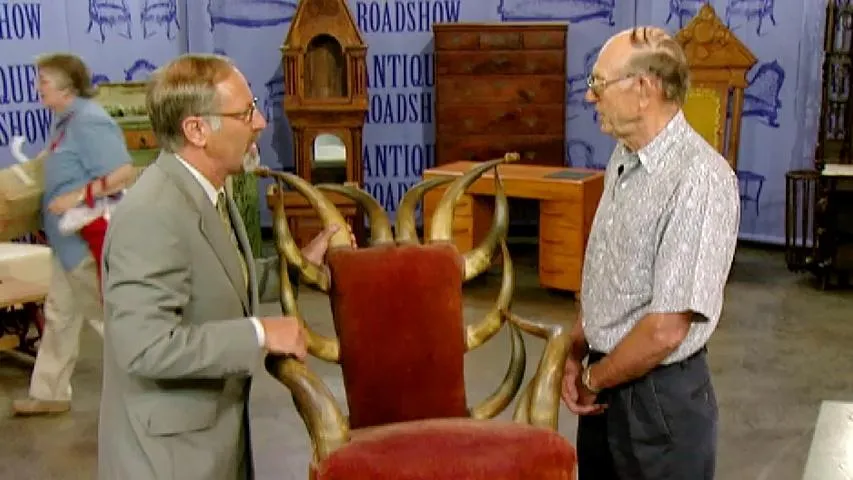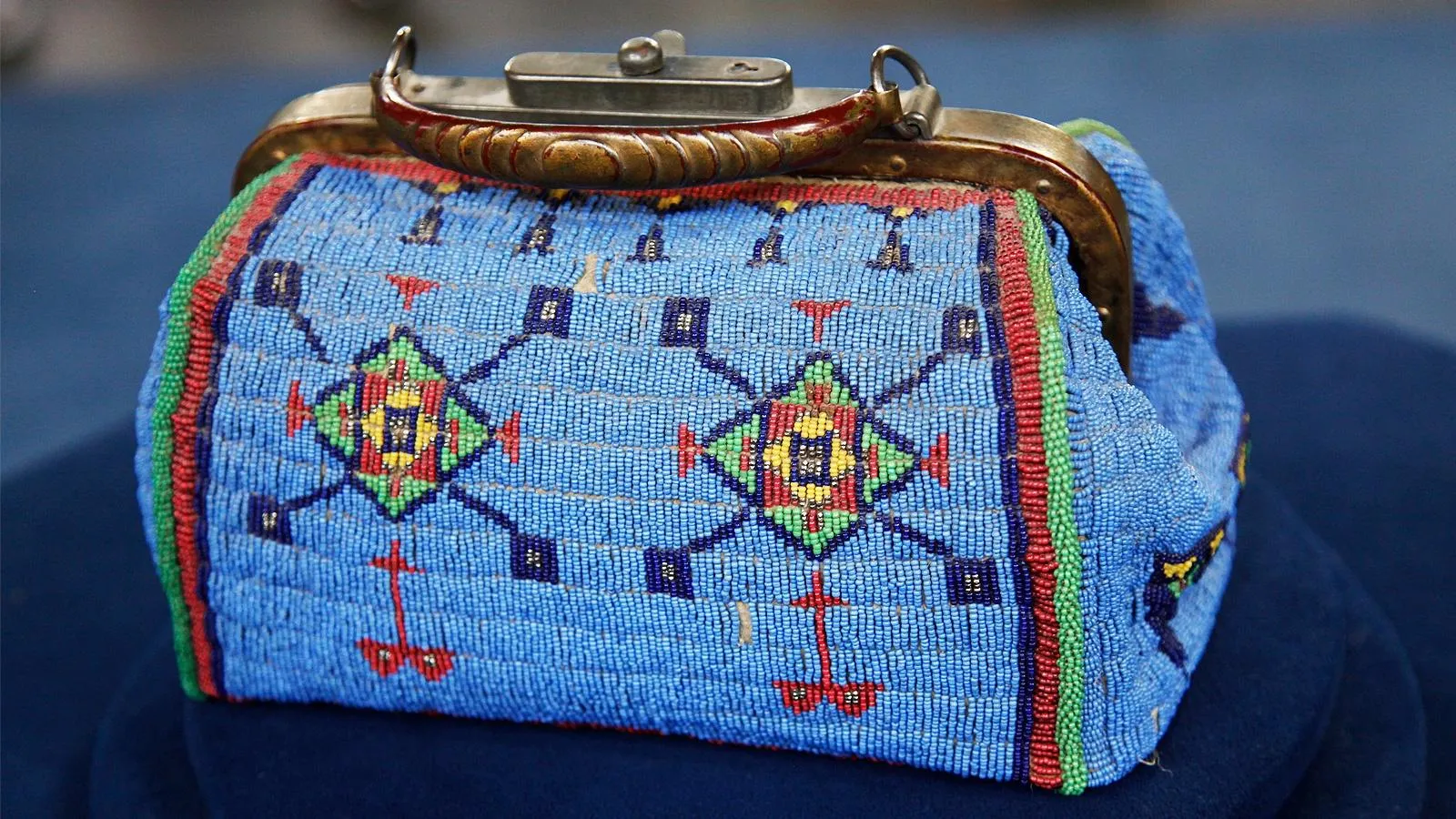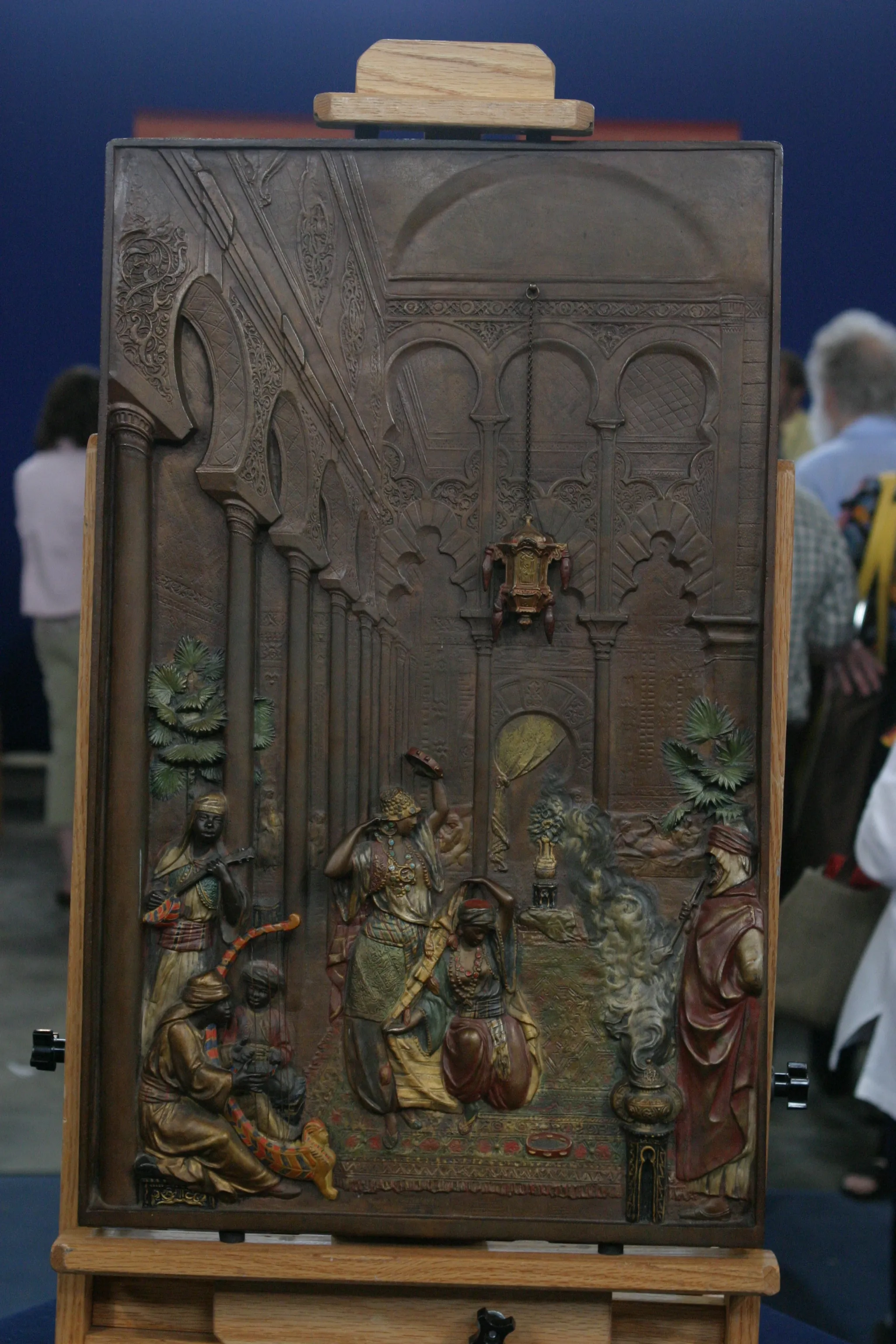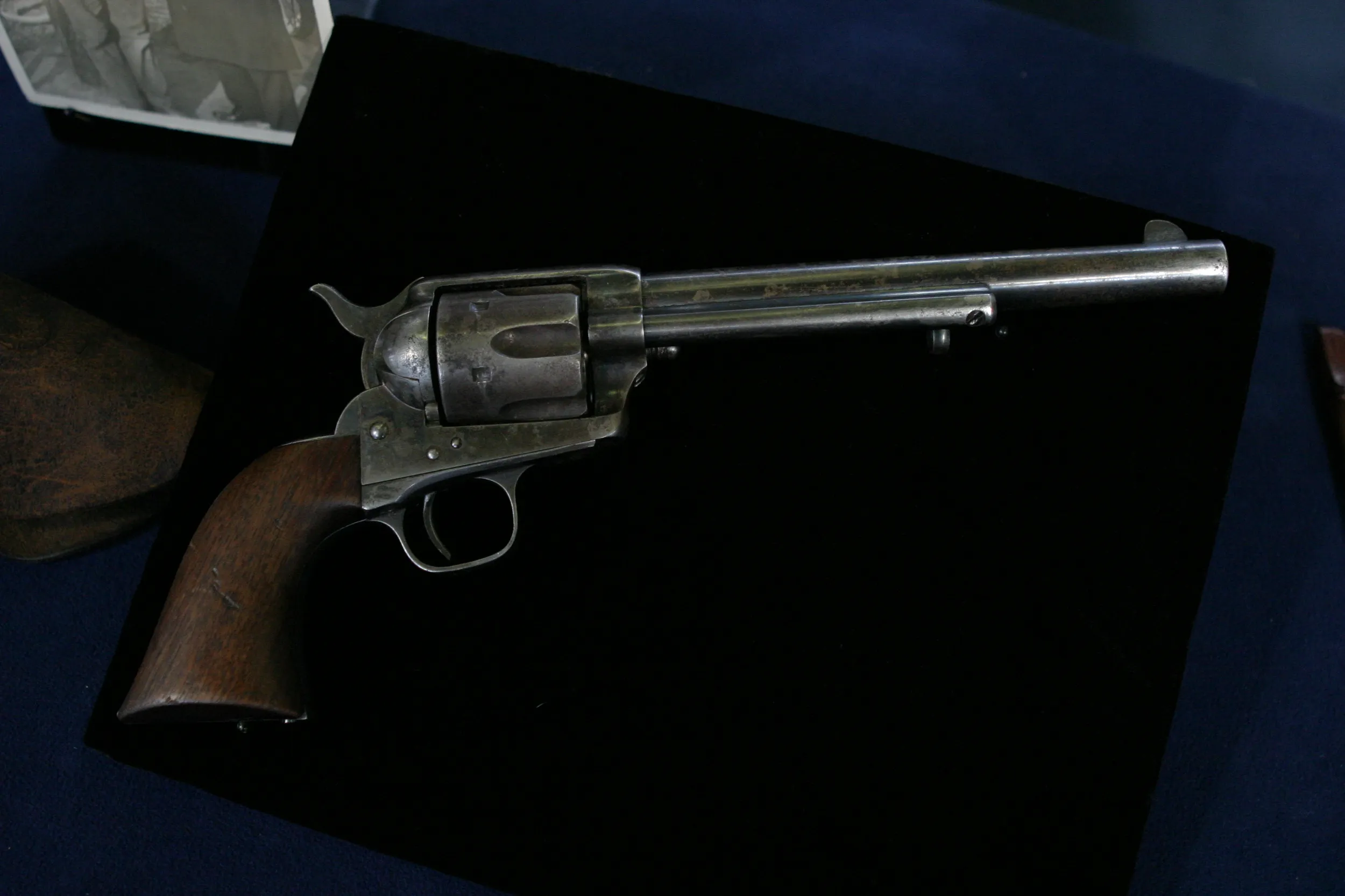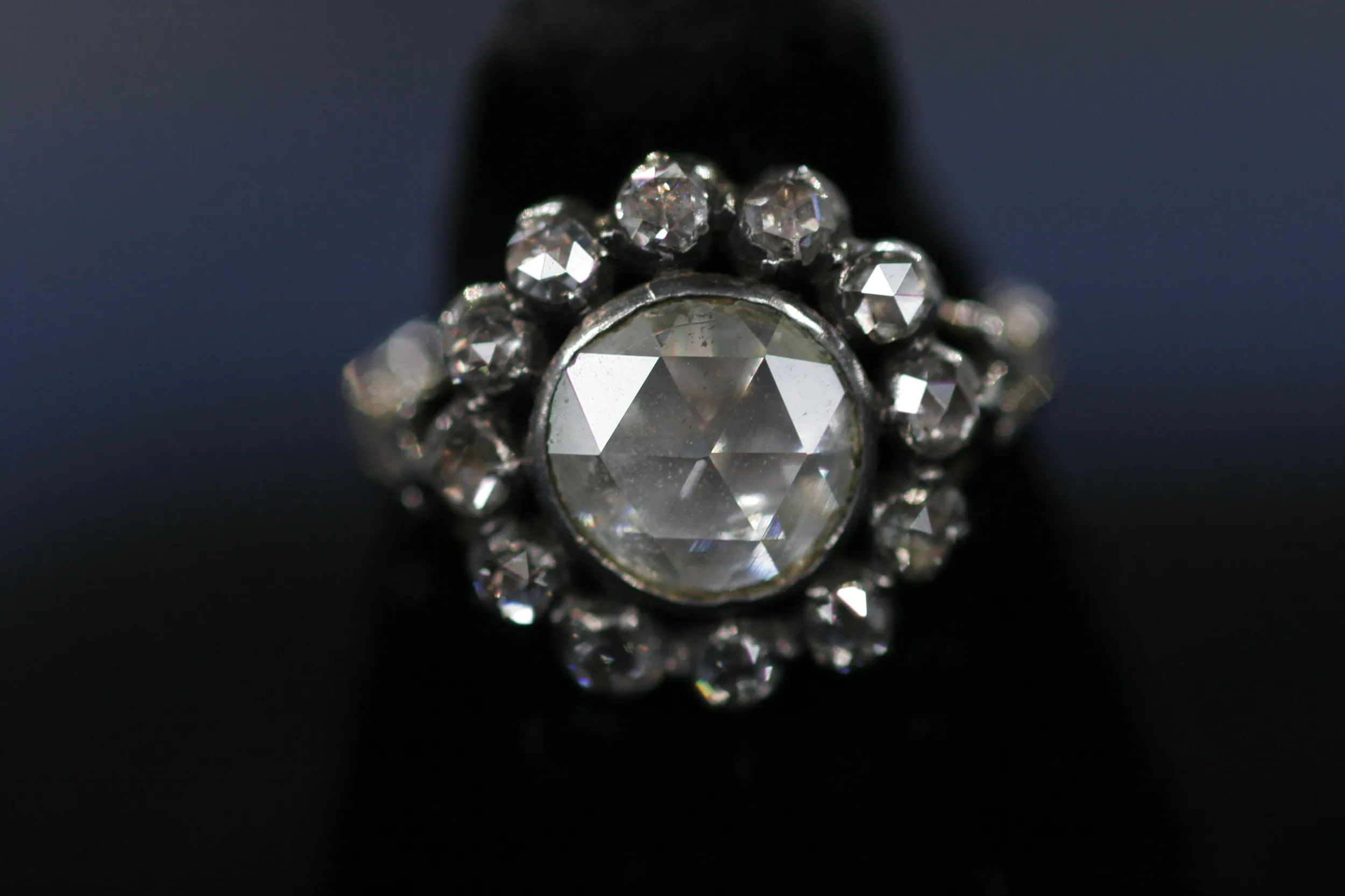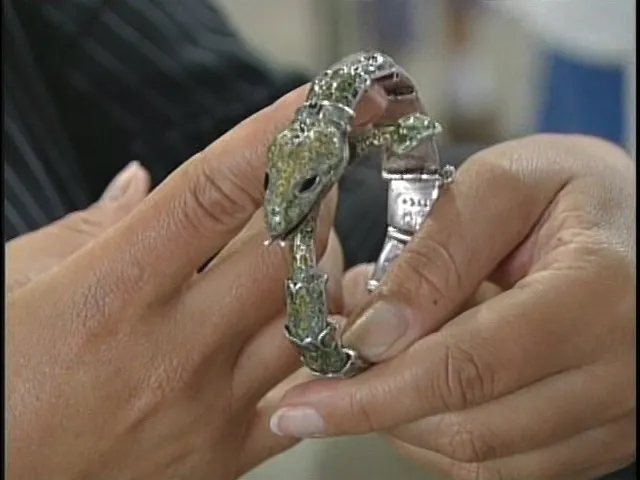GUEST: It's been in my family for only about 30 years. It was given to my grandmother by a gentleman who apparently had an uncle who was a doctor.
APPRAISER: Mm-hmm.
GUEST: And he was going to throw out all the tins and use the box as storage.
APPRAISER: This is a student's cabinet made by the Parke-Davis Company.
GUEST: Mm-hmm.
APPRAISER: Who's still in business today. Probably made around the turn of the century: 1890, 1900. And it is, going by the list here, little sample tins of various medical roots, medical herbs, and all kinds of natural remedies. And then there are more in the drawers, correct?
GUEST: Yep.
APPRAISER: So we have a whole drawer there. And then, this drawer's full, and even this drawer... My goodness, look at all that.
GUEST: And they... They get bigger as they go down.
APPRAISER: And it's a graduated set. The fact that it's survived is amazing. I've seen these tins from time to time at flea markets, in boxes, in medical bags, and they're worth, on their own, five dollars, ten dollars, $20 each. I've never seen-- how many of them?
GUEST: 288.
APPRAISER: All in very good condition, with a few exceptions. And they're mostly full, aren't they?
GUEST: Except for three.
APPRAISER: Except for three. And what ones are missing, do you remember?
GUEST: I don't know of the other two, but I know that one was cannabis sativa, which my older brother got to.
APPRAISER: Your brother got to the cannabis. We won't go there. (chuckles) Because it's complete, excellent condition, I would give a rough guesstimate of $5,000 to $7,000 for the whole kit and caboodle.
GUEST: Cool.
APPRAISER: Great thing to find in the trash.
GUEST: Yes.
